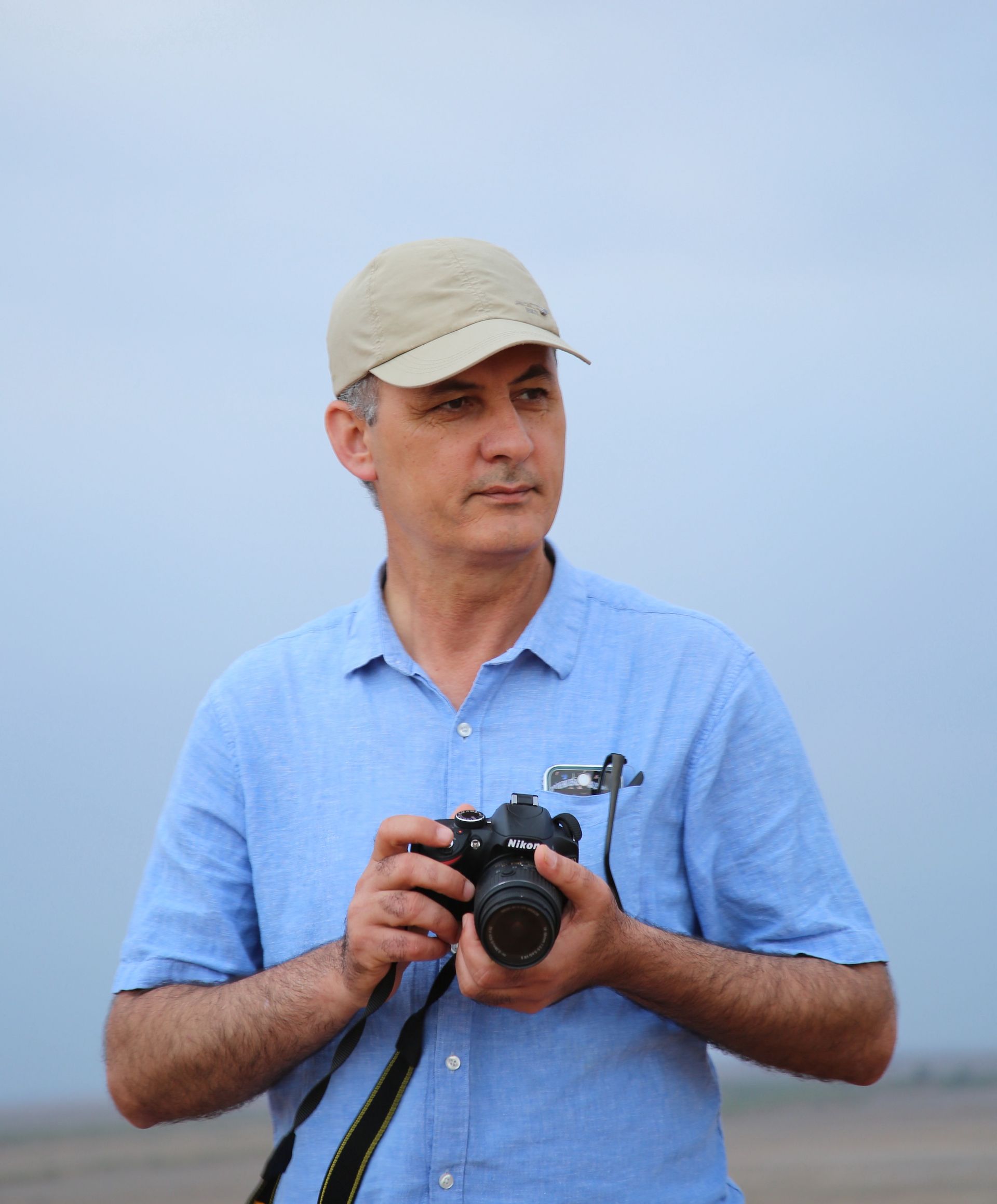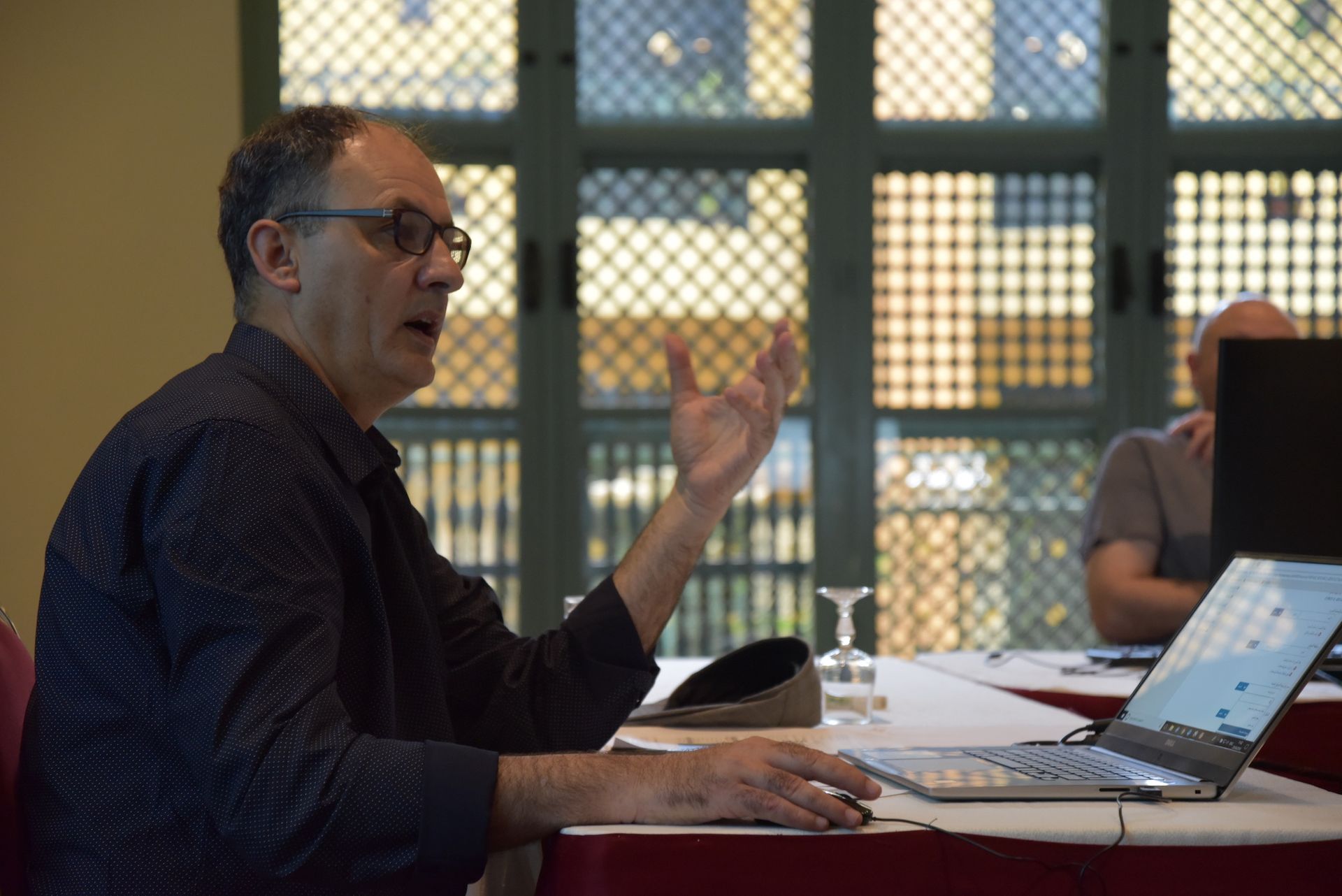Source: The Art Newspaper
Abdulamir Al-Hamdani, the revered archaeologist and former Iraqi culture minister, has died, aged 55
Hamdani, who served as Iraq’s culture minister from 2018 to 2020, played a vital role in rescuing, restoring and cataloguing the country’s ancient heritage
Hadani Ditmars4 May 2022Share

When the prominent archaeologist Abdulamir Al-Hamdani died last Friday (29 April) shortly before his 55th birthday, the former Iraqi minister of culture (2018-20) left his nation at a time of ongoing chaos. Last October’s parliamentary elections have produced sectarian infighting but no clear victor, but thanks to Hamdani’s work Iraq’s ancient world is more organized than its present.
“One of his remarkable achievements was creating a digital database and atlas of about 15,000 archaeological sites in Iraq, which took about 15 years of his career,” says friend and colleague Bijan Rouhani, a senior researcher and senior project manager for Endangered Archaeology in the Middle East and North Africa (EAMENA) at Oxford’s School of Archaeology. According to the University of Oxford, these included 1,200 new sites that had not previously been documented.
Hamdani, who was born and died (of brain cancer) in Nasriyah, just outside of the ancient site of Ur—the birthplace of the prophet Abraham and home of the famed Sumerian ziggurat—was a training manager for EAMENA before being appointed Minister for Culture, Tourism and Antiquities of Iraq in 2018.
His vision, says Rouhani, “was to prepare a young generation of Iraqi experts who could apply new technologies and techniques to identify, monitor and protect Iraq’s ancient heritage”.
As Hamdani’s coffin was driven to the Nasriyah Museum, where he was the director as well as the director of antiquities for Dhi Qar governate from 2003 to 2009, en route to his final resting place in Najaf, he was remembered by colleagues around the world as a great defender of Iraqi heritage. The Iraqi prime ministerMustafa Al-Kadhimi called him a “shining light of archaeology.”
After the 2003 invasion resulted in widespread unrest and looting of Iraqi heritage, Hamdani declared, “We have 800 sites and one million thieves. […] I am ready to work with the Devil in order to protect these sites.” To that end he worked with the Italian army, which was in charge of security in Dhi Qar from 2003-06, to protect archaeological sites. Working with a team of Carabinieri, he helped return over 400 looted objects.

In 2010, working with the State University of New York at Stony Brook (SBU), Hamdani co-directed a joint Iraqi-American mission to excavate the site at Tel Sakhariyah near the ancient city of Ur (visited last year by Pope Francis). During the height of Islamic State’s destruction of ancient sites in Northern Iraq in and around Mosul, Hamdani, then pursuing a PhD at SBU, helped organise a protest in front of the White House where he lamented, “Thousands of years of history are being smashed by the hammers of ignorance. With each destroyed statue, a story is forgotten.”
Under Hamdani’s watch as minister of culture, the Baghdad Museum started a major renovation of its Sumerian galleries, a cultural heritage museum opened for the first time in Basra and Babylon was finally inscribed as a Unesco World Heritage site.
“His career highlighted the role of Iraq’s oldest civilisations for a popular audience at home, whilst breaking new ground academically with the systematic study of the Sumerian capital of Ur and Iraq’s southern marshes,” says Tobin Hartnell, the director of the Center for Archaeology and Cultural Heritage at the American University of Iraq in Sulaimani. Hartnell worked with Hamdani at the ancient Assyrian site of Ashur from 2018-20, raising an Aliph (International alliance for the protection of heritage in conflict areas) grant to stabilise the outer arch of the famed Tabira Gate damaged by an Isis bomb in 2015.
Hartnell adds, “As an administrator, Abdulamir Al-Hamdani advanced the cause of remote sensing in order to systematically record the tens of thousands of heritage sites across Iraq.”
Hamdani was born into in a large family living in a reed hut in the Mesopotamian marshes. His illiterate father asked the Iraqi government to provide a teacher for his children. Fittingly for a place that was both an ancient site and the birthplace of the Iraqi Communist Party in 1934, they sent members of the Communist Party to educate the young Hamdani. His vision of Iraq’s past as a vector for its future and a way to transcend sectarianism and create solidarity would seem to have been born of this unique upbringing that mixed Marxism and a traditional lifestyle.
In an interview last year, Hamdani said that being raised in a village in the marshes on top of an ancient site piqued his curiosity and encouraged him to study archaeology.
“Later, I found that cultural heritage could unify the Iraqis” he said. “We need to use cultural heritage to shape our national identity of Iraqis to answer the question, ‘Who are we? Are we Iraqis? Are we Arabs? Are we Kurds? Are we Christian? Are we Muslim? Are we Jewish?’ So, to answer that question we need to use the Mesopotamian identity as our identity—as us. To unify a fragmented society, we need to have a platform to unify the people and I think the Mesopotamian identity and the cultural heritage of Mesopotamia as Iraqi heritage is the best tool to unify the society and to open a dialogue between different ethnic and religious groups in a place like Iraq.”ObituariesArchaeologyIraqHeritage